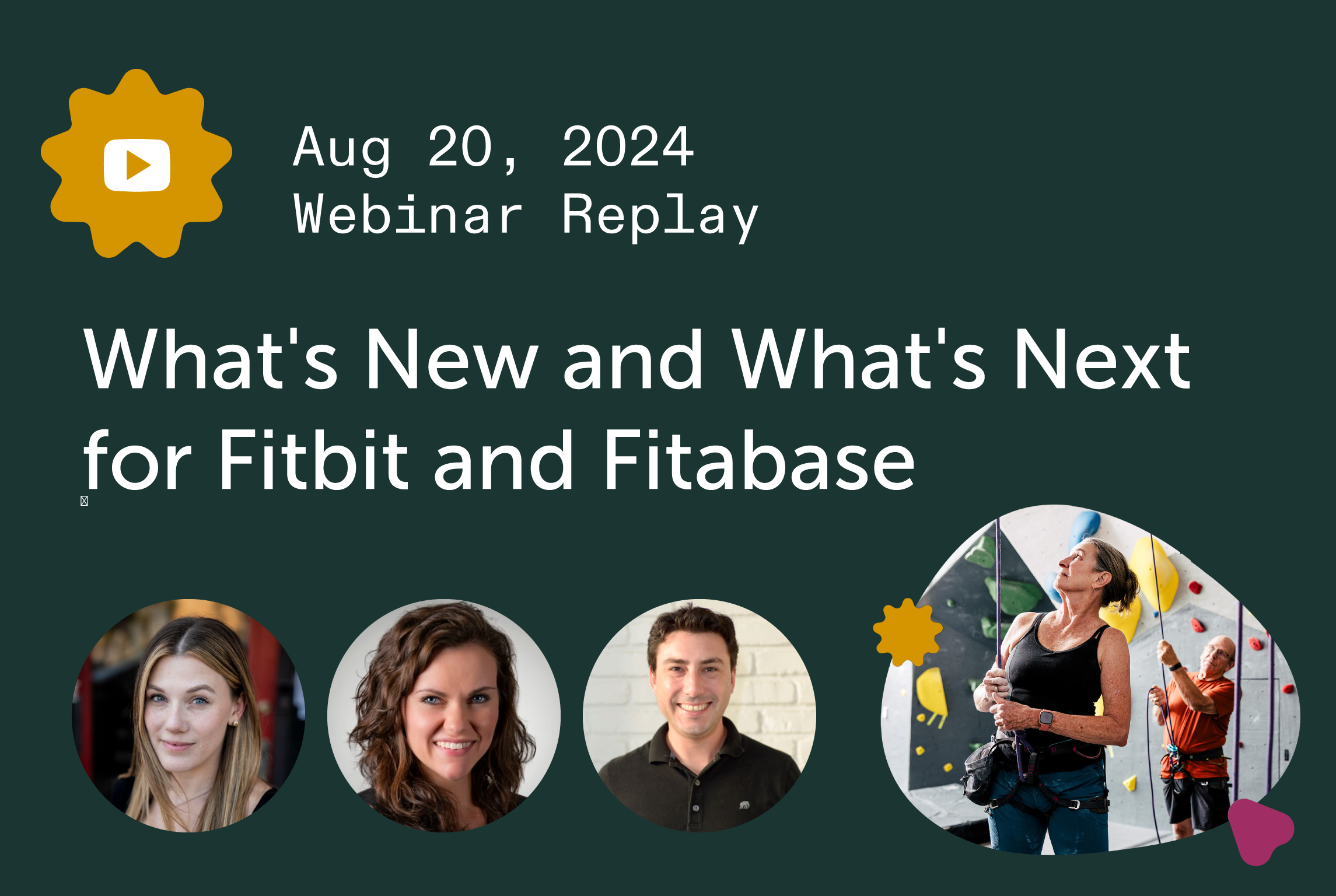
A lot can happen in a few short years. That’s especially true in tech and research.
Back in August, we hosted a webinar with our friends at Fitbit – our first since 2020 – to discuss new investments Fitbit is making in their devices, APIs, and processes for researchers, as well as additions to our own product line.
Since Google’s purchase of Fitbit, the Fitbit device line has narrowed to include primarily fitness trackers, namely the Charge and Inspire lines. These are the devices that look less like smartwatches and more like the original Fitbits you know and love. That doesn’t mean smartwatches have been nixed from the lineup, though: the Google Pixel devices have essentially replaced the Sense and Versa lines, which were discontinued. The Pixel now uses Fitbit tech to gather activity and sleep datasets. And, those datasets just keep growing. With continued investment by Google in new datasets, tools, and the opening of additional APIs, Fitbit devices continue to be a great choice for researchers.
Recently-added Fitbit datasets include:
- Skin and core temperature
- Breathing Rate
- Cardio Fitness Score
- HRV
- ECG
- Irregular Rhythm Notifications (coming soon to Fitabase!)
- Sleep logs that show if a wearer manually or automatically logged that sleep session
As Google and Fitbit combine, you’ve also likely seen changes to processes around participant account creation. This is another area the Fitbit team is working to streamline for researchers after hearing feedback from teams through Fitabase, and other avenues. Google accounts will soon be able to be created for research teams en masse versus researchers needing to create individual accounts. We at Fitabase and our friends at Fitbit acknowledge that this current process is a big lift with significant impact, and are eager to get this new process off the ground in the coming weeks.
As Fitbit rolls out new datasets for us to capture, we’ve been investing in ways not only to gather and share that data with you, but also to use that data for messaging directly to research participants.
We will soon add push notifications to our sync reminder functionality, which we debuted in 2021. Push notifications will be sent through our first-ever mobile app, Fitabase Engage, which represents an exciting pivot from on-wrist ecological momentary assessment to a full suite of tools for creating, sending and managing phone-based reminders, messages and EMA surveys. These can be time-based or triggered using the participant's wearable data.
You can watch the whole webinar here to get the full rundown from Fitabase and Fitbit.